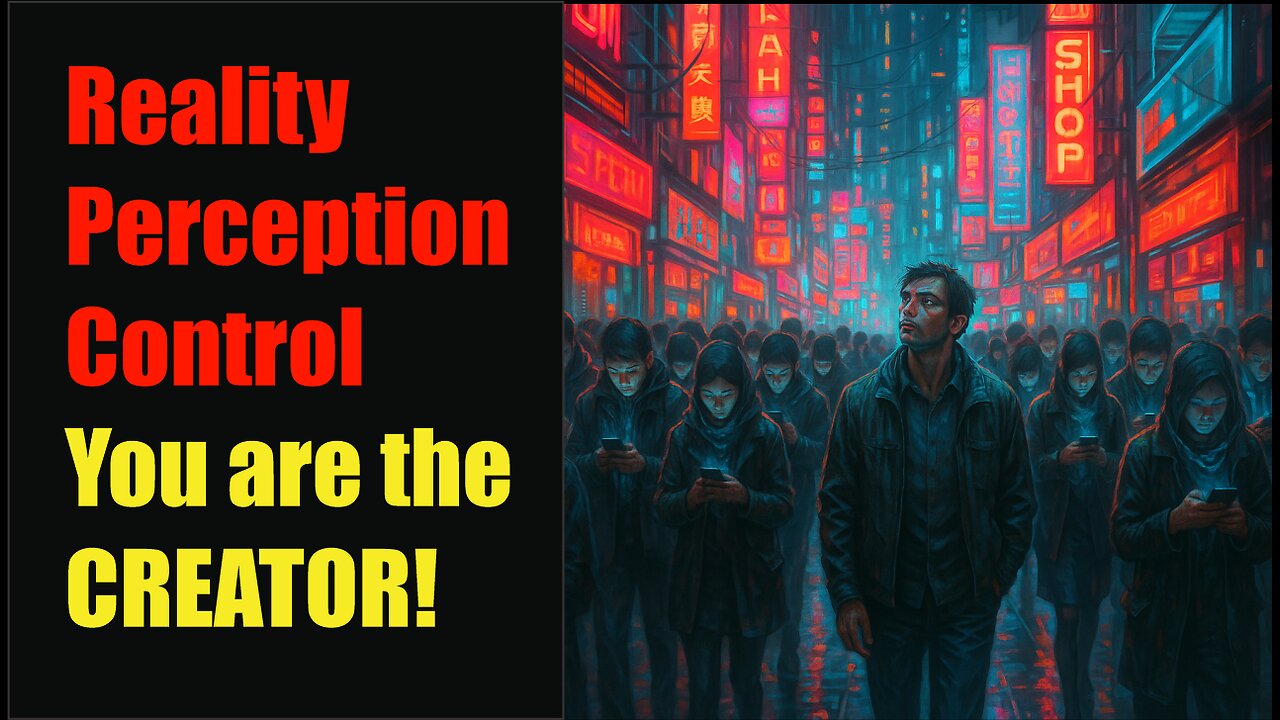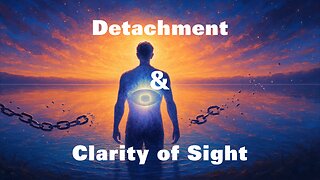Premium Only Content

You are the Creator! Create the life that YOU want!
perception, in humans, the process whereby sensory stimulation is translated into organized experience. That experience, or percept, is the joint product of the stimulation and of the process itself. Relations found between various types of stimulation (e.g., light waves and sound waves) and their associated percepts suggest inferences that can be made about the properties of the perceptual process; theories of perceiving then can be developed on the basis of these inferences. Because the perceptual process is not itself public or directly observable (except to the perceiver himself, whose percepts are given directly in experience), the validity of perceptual theories can be checked only indirectly. That is, predictions derived from theory are compared with appropriate empirical data, quite often through experimental research.
Historically, systematic thought about perceiving was the province of philosophy. Indeed, perceiving remains of interest to philosophers, and many issues about the process that were originally raised by philosophers are still of current concern. As a scientific enterprise, however, the investigation of perception has especially developed as part of the larger discipline of psychology.
Philosophical interest in perception stems largely from questions about the sources and validity of what is called human knowledge (see epistemology). Epistemologists ask whether a real, physical world exists independently of human experience and, if so, how its properties can be learned and how the truth or accuracy of that experience can be determined. They also ask whether there are innate ideas or whether all experience originates through contact with the physical world, mediated by the sense organs. For the most part, psychology bypasses such questions in favour of problems that can be handled by its special methods. The remnants of such philosophical questions, however, do remain; researchers are still concerned, for example, with the relative contributions of innate and learned factors to the perceptual process.
Such fundamental philosophical assertions as the existence of a physical world, however, are taken for granted among most of those who study perception from a scientific perspective. Typically, researchers in perception simply accept the apparent physical world particularly as it is described in those branches of physics concerned with electromagnetic energy, optics, and mechanics. The problems they consider relate to the process whereby percepts are formed from the interaction of physical energy (for example, light) with the perceiving organism. Of further interest is the degree of correspondence between percepts and the physical objects to which they ordinarily relate. How accurately, for example, does the visually perceived size of an object match its physical size as measured (e.g., with a yardstick)?
Questions of the latter sort imply that perceptual experiences typically have external referents and that they are meaningfully organized, most often as objects. Meaningful objects, such as trees, faces, books, tables, and dogs, are normally seen rather than separately perceived as the dots, lines, colours, and other elements of which they are composed. In the language of Gestalt psychologists, immediate human experience is of organized wholes (Gestalten), not of collections of elements.
A major goal of Gestalt theory in the 20th century was to specify the brain processes that might account for the organization of perception. Gestalt theorists, chief among them the German-U.S. psychologist and philosopher, the founder of Gestalt theory, Max Wertheimer and the German-U.S. psychologists Kurt Koffka and Wolfgang Köhler, rejected the earlier assumption that perceptual organization was the product of learned relationships (associations), the constituent elements of which were called simple sensations. Although Gestaltists agreed that simple sensations logically could be understood to comprise organized percepts, they argued that percepts themselves were basic to experience. One does not perceive so many discrete dots (as simple sensations), for example; the percept is that of a dotted line.
Without denying that learning can play some role in perception, many theorists took the position that perceptual organization reflects innate properties of the brain itself. Indeed, perception and brain functions were held by Gestaltists to be formally identical (or isomorphic), so much so that to study perception is to study the brain. Much contemporary research in perception is directed toward inferring specific features of brain function from such behaviour as the reports (introspections) people give of their sensory experiences. More and more such inferences are gratifyingly being matched with physiological observations of the brain itself.
-
 6:43
6:43
MagnumOpus333
1 day agoDetachment And Clarity Of Sight
14 -
 LIVE
LIVE
The Rubin Report
51 minutes agoPress Stunned by Trump’s Brutally Honest Message for Elon Musk
1,542 watching -
 1:01:50
1:01:50
VINCE
2 hours agoEpstein Victims Have Come Forth, The Names Have Not | Episode 118 - 09/04/25
59.8K39 -
 LIVE
LIVE
LFA TV
4 hours agoLFA TV ALL DAY STREAM - THURSDAY 9/4/25
4,705 watching -
 LIVE
LIVE
Badlands Media
6 hours agoBadlands Daily: September 4, 2025
3,968 watching -

Dear America
2 hours agoEpstein Victims Vow To EXPOSE Everyone! + Are China and Russia Planning Against Trump?!
88.2K46 -
 LIVE
LIVE
Law&Crime
2 hours ago $1.06 earnedLIVE: Adelson Matriarch Murder Trial — FL v. Donna Adelson — Day 9
295 watching -
 LIVE
LIVE
The Big Mig™
1 hour agoCartels Are On Borrowed Time, Here Comes The BOOM!
5,053 watching -
 LIVE
LIVE
Matt Kohrs
12 hours agoMASSIVE Market Swings Incoming! || Top Futures & Options Trading Show
515 watching -
 LIVE
LIVE
Wendy Bell Radio
6 hours agoIt's All About the Benjamins
6,997 watching